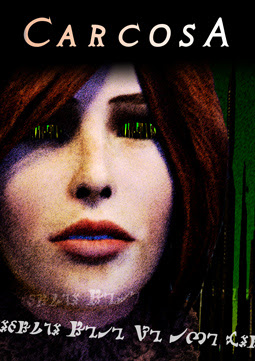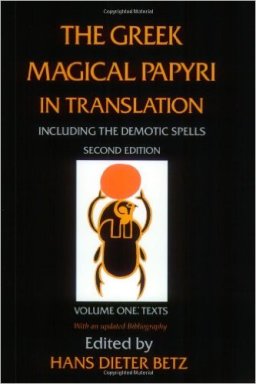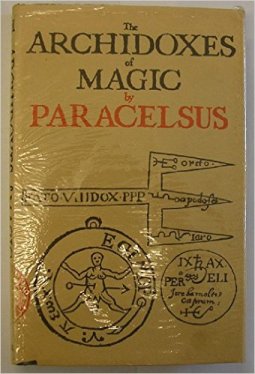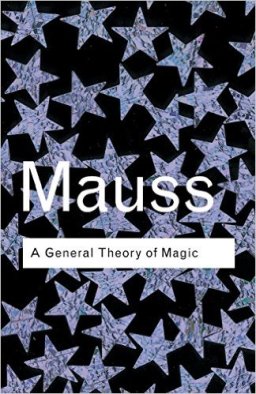Hugh Hancock and Why Geeks Love Lovecraftian Magic

How come geeks like Lovecraftian magic so much?
Writing on Charles Stross’s blog, Hugh Hancock, Machinima guru turned live-action filmmaker and web comic — um — maker(?) who — disclaimer! — has been a mate since he threw me through a pile of chairs, thus curing the suspected RSI in my shoulder — thinks it’s because Lovecraft pings the things that horrify geeks:
What if too much knowledge really was bad?
What if there were no life hack to divert the apocalypse?
What if the Inquisition were right?!!?
Obviously he’s onto something. It is all pretty horrifying and creates a wonderful double bind; we readers simultaneously want the protagonist to satisfy our curiosity, and at the same time want them to flee the horrid fate that will result.
However, I think there’s more than Horror at work.
Before I go on to explain why, go and watch his short Lovecraftian film HOWTO Demon Summoning so we have a common reference point (and because it’s funny and horrific, and makes surprising use of CGI given Hugh is an indy filmmaker).

Well I laughed, not least because I could also see it coming.
There’s a “real” spell in the Greek Magical Papyri which describes in detail how to enter the vault of a candle flame, beard a God in his Heavenly Hall, step on his foot (!) and demand a favour. Only at the very end(!) of the procedure does it mention how to first create a protective girdle to be worn while undertaking this foot-on blasphemy.
Back when I read that spell, my reaction was, “That’s not how to lay out a procedure!” In hindsight, this translates into “That’s bad technical authoring” (and perhaps that line of thinking was what launched me into my first profession).
As I once explained in a job interview (“So, Martin, Medieval History to technical authoring — that’s quite a leap…?“), Magic and Computing are very similar. You rarely know how it all works, you just have to take some of it on trust and while doing this, you have to assimilate the logical structures and work with them.
I think this is why geeks in general like stories about magic.
It’s part wish fulfillment — OMG! What if I could apply my leet C++ skills to programming the universe? — but mostly wanting to see our professional experience reflected in the stories they read. Just as the appeal of Military fiction is partly “workplace adventure but with body count”, tales of magic are “programmer adventures but with higher stakes”.
Now if magic in general is like computing, then Lovecraftian magic is doubly so. So much so that the wish fulfilment gives way to a gritty reflection of professional experience.
Here’s why.
Traditional magic pretty much makes human sense.
For example, want to start a war? Go to an old battlefield. Burn some pepper. Invoke the spirit of Mars… (Please don’t run off and try this.)
It’s poet as power user.

Symbol set as natural programming language.
Consequently, there’s wiggle room. Old grimoires suggest substitutions if you can’t get just the right (ahem) material component. They contain magical words, but don’t dwell on their pronunciation.
Ultimately, as Paracelsus — an actual purported magician — stated, it’s all about Will and Imagination. This chimes with the observation of anthropologist Marcel Mauss, (A General Theory of Magic, still a good read and more useful to a writer than Fraser’s The Golden Bough, by the way) that most ritual is backed up with a narrative:
“This stick is your luck. By burning it, I destroy your good fortune.”

A magician, if you are to believe modern Chaos Magic, doesn’t even have to get the words right. They can make up their ritual as they go along, as long it feels powerful.
Conversely, but following on from the need to feel powerful, the magician’s conduct does matter.
The old grimoires are full of injunctions to fast and self-purify before attempting magic, and to take the ritual itself very seriously.
You certainly can’t — like Hugh’s protagonist — do it while clutching a bottle of beer like a lost pirate.
Computer programming isn’t like traditional magic.
The underlying logic is both inhuman and often invisible.
Some things work that should not. Others won’t work, that should. The whole experience can melt your brain.
It’s also brutally mechanistic.
It doesn’t matter what your vision is, how strong your willpower, you have to get the right words down in the right order or you get a syntax error, or worse.
However, you can hack out code while high on whatever, or jittery on coffee, sitting in your boxers days from a shower but inches from a pile of moldering pizza cartons.
That pretty much describes — say — Microsoft Visual Basic for Applications, but also Lovecraftian Magic (the only difference being that VBA is probably more dangerous to the user). And that, in addition to the horror element, is why I think geeks like Lovecraftian magic.
What do you think?
M Harold Page (www.mharoldpage.com) writes stories with fights in them. You can buy his action-packed Dark Age adventure, Shieldwall: Barbarians! (UK, Epub) and also learn how to plan and write your novels using his Storyteller Tools: Outline from vision to finished novel without losing the magic (UK, Epub)
There’s a lovely bit in M.C. Planck’s portal fantasy Sword of the Bright Lady in which our hero, a mechanical engineer from 21st century Arizona, has to figure out from his new world’s theological treatises how to work magic. Once he treats the treatises like poorly written software documentation, he’s on his way to becoming an adept.
Sounds like a good read. I shall investigate.
On a slightly less deadly note, there are the Harold Shea stories of L. Sprague de Camp and Fletcher Pratt, collected as The (In)Complete Enchanter, where symbolic logic is the conduit for magical spells. Not a surprise that the stories were published by John W. Campbell in his (science) fantasy magazine, Unknown.
Or we could consider Poul Anderson’s scientific deconstruction of magic in Three Hearts and Three Lions. So, it seems that we sf geeks like to document (however loosely) our “reality hacks”.
Great post!